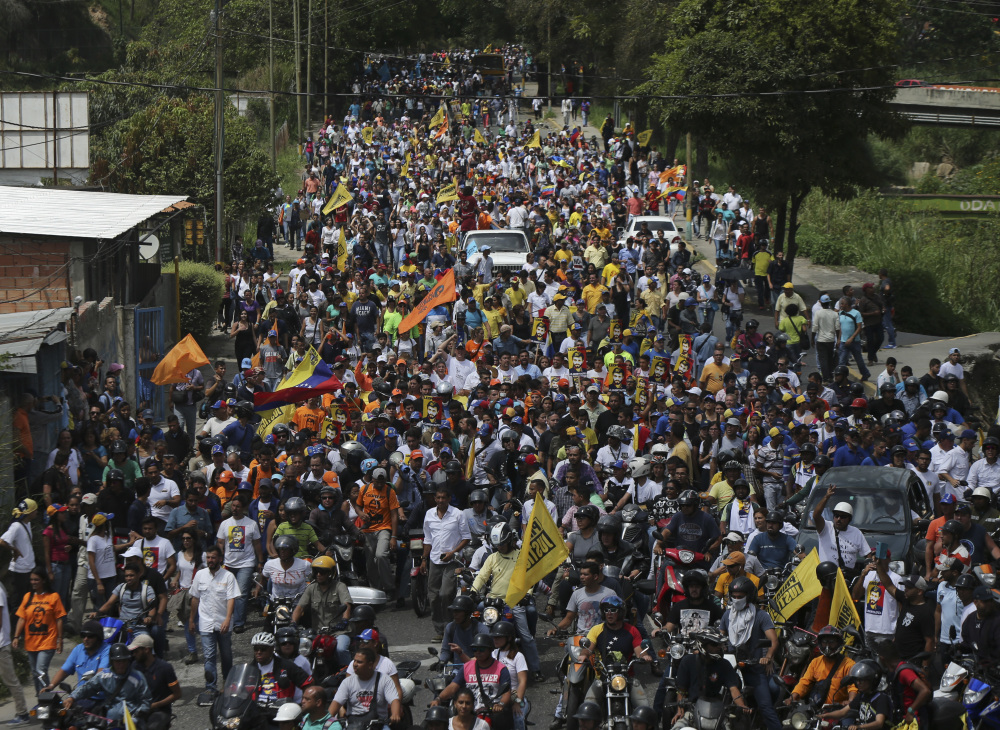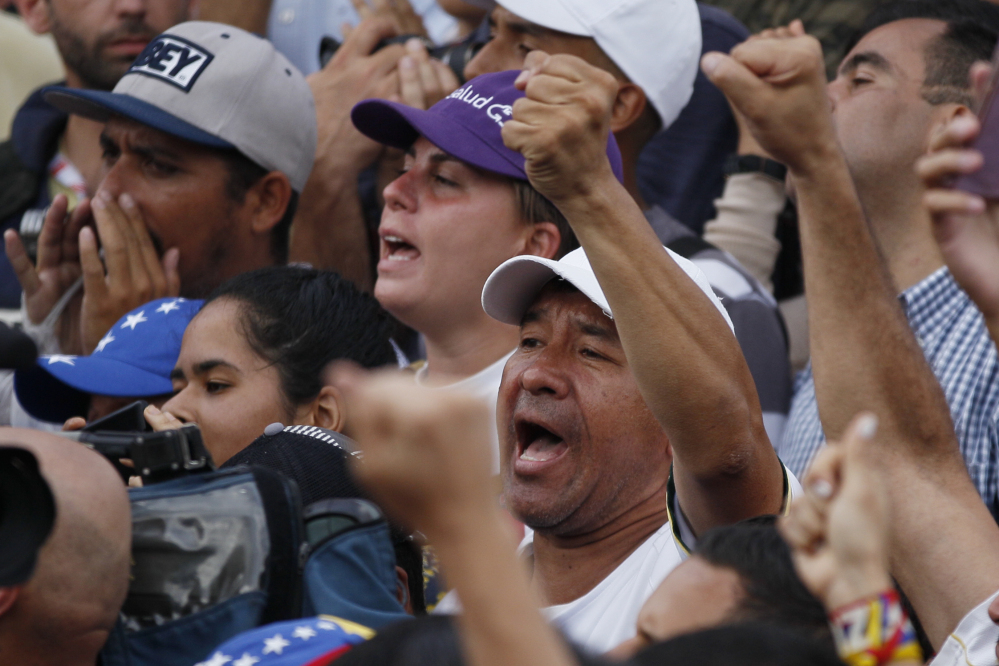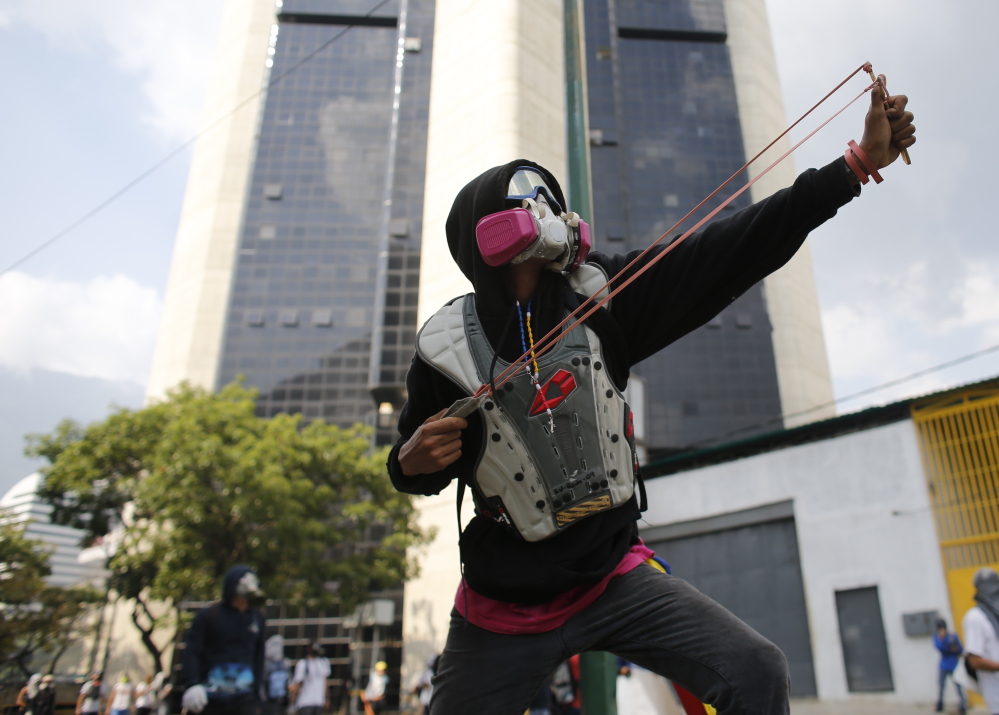CARACAS, Venezuela — In the cramped hillside slums where they once adored Hugo Chávez, hungry families now jeer and bang pots at the man struggling in his shadow, President Nicolás Maduro.
Chávez, a master showman who promised his country a socialist “revolution,” loved to wade through crowds of poor Venezuelans, blowing kisses and dispensing hugs.
But when his successor has ventured out in public in recent months, he’s been pelted with eggs and chased by angry mobs.
“Maduro is so different,” said Irene Castillo, 26, who lives in El Guarataro, a tough neighborhood not far from the presidential palace.
She voted for Maduro in 2013 when Chávez died after 14 years in power. But no one on Castillo’s block supports the government anymore, she said. “Now, those who remain ‘chavistas’ are just the radicals.”
As the country’s bloody, volatile month-old protest movement hardens into a prolonged standoff between demonstrators and the government, the loyalties of poorer Venezuelans like Castillo have become a swing factor in determining whether the president will survive.
The thousands of demonstrators pouring into the streets in recent weeks are mostly middle class, outraged by Venezuela’s economic collapse and the government’s increasingly authoritarian rule. But Venezuelans from longtime chavista strongholds are starting to join them, at considerable risk. Residents of Castillo’s neighborhood protested openly against Maduro for the first time last week.
Pro-government block captains in neighborhoods like El Guarataro have responded by threatening to deny food rations to those who march with the opposition or fail to join pro-Maduro rallies. Militia groups armed by the government known as “colectivos” are deployed to intimidate would-be defectors and are suspected in the deaths of several protesters.
As the confrontation escalates, many other destitute Venezuelans remain on the sidelines, disillusioned with Maduro but unpersuaded by his opponents, or too busy looking for food to join a march.
Aside from a military revolt, there is perhaps nothing Maduro fears more than a rebellion spreading through the neighborhoods that long backed Chávez. There are signs it’s already happening.
The leaders of the Democratic Unity party, the big-tent coalition of Maduro opponents, are demanding that the government release political prisoners and move up presidential elections due to take place in late 2018.
They also want full power restored to the legislative branch, which Maduro and pro-government judges have stymied since the opposition won majority control in 2015.
Copy the Story LinkSend questions/comments to the editors.





Success. Please wait for the page to reload. If the page does not reload within 5 seconds, please refresh the page.
Enter your email and password to access comments.
Hi, to comment on stories you must . This profile is in addition to your subscription and website login.
Already have a commenting profile? .
Invalid username/password.
Please check your email to confirm and complete your registration.
Only subscribers are eligible to post comments. Please subscribe or login first for digital access. Here’s why.
Use the form below to reset your password. When you've submitted your account email, we will send an email with a reset code.